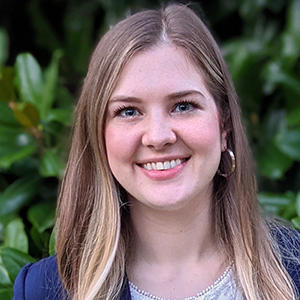ASBMB calls for NIGMS to expand programs
The American Society for Biochemistry and Molecular Biology submitted comments to the National Institute of General Medical Sciences last month asking that it continue issuing and renewing MIRA awards and increase funding for the science, technology, engineering and math training pipeline.
These suggestions arose in response to the NIGMS’ latest advisory council meeting, held Feb. 3, which unveiled that the Maximizing Investigators' Research Award renewals were double the rate of the traditional R01 renewals. The NIGMS also approved new and continuing programs that target diversity, equity and inclusion initiatives.
The society’s suggestions would amplify the NIGMS’ efforts, which have been transformative for many scientific research labs, and help to increase the accessibility of the institute’s programs to a wider breadth of researchers and students, especially those from historically marginalized populations.
Susan Forsburg, a distinguished professor at the University of Southern California and a member of the ASBMB Public Affairs Advisory Committee, said, “The MIRA award made a huge difference by allowing me to consolidate my two grants. Before MIRA, it seemed that I was always writing grants since they were not synchronous. Now, my research can be science-driven and not grant-review-driven.”
The society said it was encouraged by the NIGMS’ presentation overall, praising the success of the MIRA program and its commitment to diversity, equity, inclusion and accessibility, but it offered the following recommendations:
1. Continue the issuance and renewal of MIRA awards.
Roughly 800 labs, from 2016 to 2021, have been supported by the MIRA program. But it wasn’t until 2021 that the first cohort of awardees became eligible to renew their awards, providing NIGMS with a measure of success for the overall program.
“The doubling of the rate is encouraging because MIRA was intended to promote stability. I do think the five-year span of the grant allows better productivity, and I suspect that’s a part of (the significant increase),” Forsburg said. “Once things get rolling, there’s time to follow up, rather than have to rush back to writing a renewal in less than three years.”
The ASBMB said it would like “to see this program expand to provide new awards to more researchers,” especially those at minority-serving institutions and historically Black colleges and universities.
2. Increase funding for the STEM training pipeline.
The ASBMB asked that the National Institutes of Health further build the “research capacity in states that have had historically low levels of NIH funding” by increasing the Centers of Biomedical Research Excellence program to bring the threshold from one to two awards per eligible Institutional Development Award state.
Susan Baserga, a professor at Yale University and a founding member of the ASBMB Women in Biochemistry and Molecular Biology Committee, emphasized that “increasing the number of COBRE awards within IDeA states will double our efforts to build research infrastructure in states with low NIH funding. This is key for building a nationally diverse future biomedical workforce.”
The ASBMB also encouraged NIGMS to expand undergraduate research awards to “support first-year students… to increase the number (of diverse students) who stick with science and choose it as a career.” This change would help to reduce the “significant loss of talent in the transition between high school and undergraduate programs.”
Read the ASBMB’s full comments here.
Enjoy reading ASBMB Today?
Become a member to receive the print edition four times a year and the digital edition monthly.
Learn moreGet the latest from ASBMB Today
Enter your email address, and we’ll send you a weekly email with recent articles, interviews and more.
Latest in Policy
Policy highlights or most popular articles

Women’s health cannot leave rare diseases behind
A physician living with lymphangioleiomyomatosis and a basic scientist explain why patient-driven, trial-ready research is essential to turning momentum into meaningful progress.

Building a stronger future for research funding
Hear from Eric Gascho of the Coalition for Health Funding about federal public health investments, the value of collaboration and how scientists can help shape the future of research funding.

Councilors advocate for science on Capitol Hill
ASBMB Councilors meet with their elected officials to advocate for basic scientific research funding and training the next generation of scientists.

Hope for a cure hangs on research
Amid drastic proposed cuts to biomedical research, rare disease families like Hailey Adkisson’s fight for survival and hope. Without funding, science can’t “catch up” to help the patients who need it most.

Supporting science through advocacy and community building
ASBMB calls on scientists to take action as funding cuts and policy shifts threaten the U.S. research enterprise, emphasizing the power of community advocacy and persistence in protecting the future of science.

Seven steps to advocating in your home state
Find out how to schedule, prepare for and conduct a productive district office meeting to communicate the importance of fundamental scientific research funding to your representatives.

